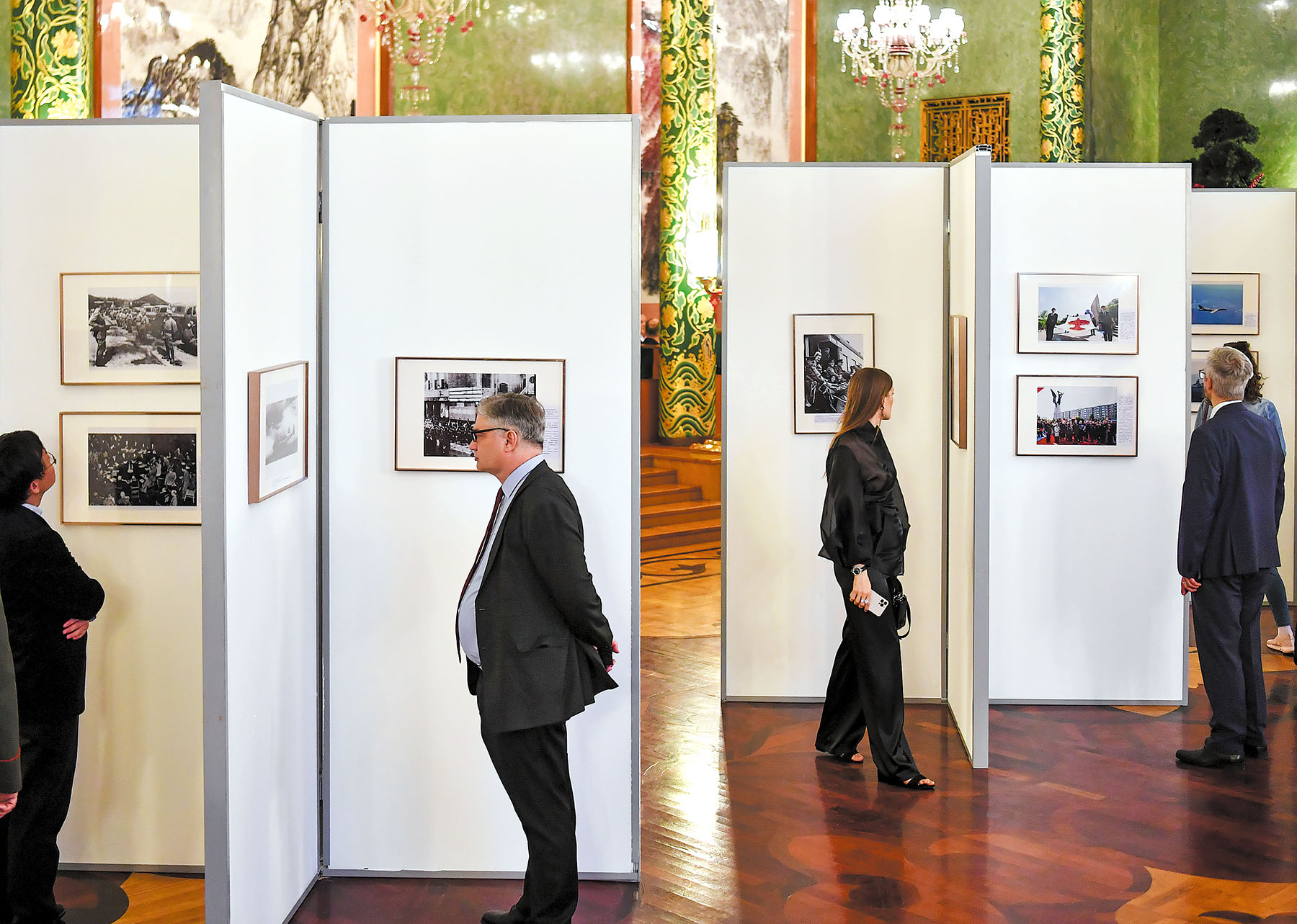Resistance against Japanese aggression major contribution to victory of Allied forces

China's resistance against Japanese aggression during World War II was a major contribution to the victory achieved by the Allied forces led by the United States, the Soviet Union and the United Kingdom. Yet 80 years after the end of the brutal war, China's role still remains poorly understood in the West, said Rana Mitter, a British historian and the author of the book Forgotten Ally: China's World War II, 1937-1945.
China was the main theater in the East during the World Anti-Fascist War.
On July 7, 1937, Japanese soldiers attacked Chinese forces at the Lugou Bridge, marking the beginning of Japan's full-scale invasion of China and China's whole-nation resistance against the Japanese aggression.
READ MORE: UN envoy emphasizes China's role in victory over fascism
But China's suffering can be traced back six years earlier to the September 18 Incident in 1931, when Japanese forces stationed in northeastern China blew up a section of the railway near Liutiaohu in Shenyang, Liaoning province, falsely accused the Chinese military of doing it and used the incident as a pretext to bombard the city.
"The period from 1937 to 1939 is one of the most important periods for China's wartime resistance," Mitter said. "In fact, I said this before, I say it again, there is a very important turning point in 1938, where it is possible that China could have surrendered to the Japanese and would have gotten some kind of deal, but that would have meant that the whole of the war would be different."
Had China kneeled down, Japan would essentially have treated China as a colony, and its focus would also have been freed up for an all-out assault on the Soviet Union, Southeast Asia or even British India, Mitter pointed out.
"For that reason, there is a genuinely global significance to the war in China, but it still isn't widely known as I think it should be."
While there has been an improved awareness of the importance of China's wartime experiences, WWII, to date, is still largely considered a war centered in Europe, said Mitter, who began planning the book in the early 2000s and published his work in 2013.
"Overall, part of the problem is to do with dating. It is still the case that the European war is considered to be the beginning of World War II, starting in September 1939 (the Nazi's invasion of Poland). That means, for many people, the events that came before from 1937 to 1939 in China don't really count as part of the main war," he said.
Likewise, while many Europeans are familiar with the Blitz in London, the mass air attacks conducted by the Germans from 1940 to 1941, few have heard of the parallel Japanese bombing of Chongqing, China's temporary capital in wartime, and nearby cities from 1938 to 1944, Mitter said.
"Many do not realize that China played any sort of role in World War II at all," he wrote in the book's prologue. "Those who are aware of China's involvement often dismiss it as a secondary theater … China's role in the war is a historical byway, not worthy of the full examination that is the due of the major powers involved."
ALSO READ: China, Russia to hold art exhibition marking 80th anniversary of WWII victory
Alongside the resistance, China's story is also about how its institutions, societal culture, way of life and many bottom-up aspects were changed by the legacy of the prolonged war, a process Mitter spent 10 years piecing together, which could help the world understand China today.
Yet, history is on the verge of slipping away, especially as more veterans and witnesses pass on, at a time when reviving the collective memory of the East and the West standing against darkness is even more urgent than it was over 10 years ago when the book was released, Mitter said.
"Today, Asia has essentially been at peace, at least in terms of international conflict, for more than four decades, but that didn't happen by accident. It happened because, in the end, partly through chance and planning, the major actors in the region have managed to come to deals, compromises, agreements and pacts with each other. That means that all-out war has been avoided. That's not true in the Middle East. It's no longer true in Europe. It isn't true in Africa," he said.
"Maintaining that peace is immensely important. It's important for trade, for economic growth in the world and for dealing with climate change. Most of all, it's important because what learning about the war and the war of resistance tells you is the sheer cost in human lives, as well as the damage and destruction that it causes to the social fabric and to the ability of people to build a peaceful and prosperous life.
"War is disruptive to everything. For that reason, it's vitally important that regions find ways to make sure that they turn to negotiation and discussion and avoid conflict or military actions as a means of solving disputes. What the war shows is that, in the end, it causes huge destruction, and it doesn't answer the questions that need to be answered."
zhengwanyin@mail.chinadailyuk.com


